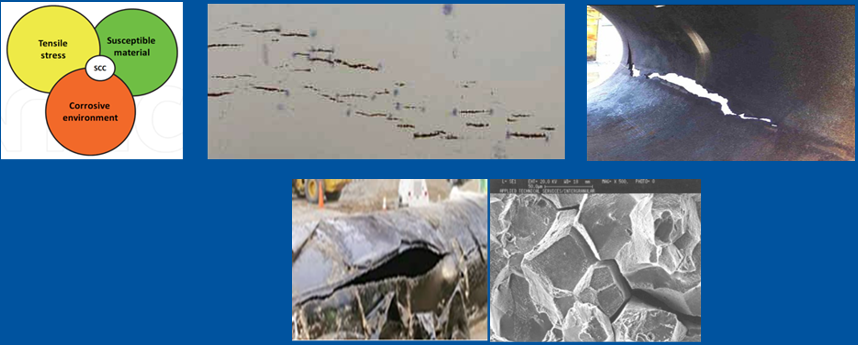Stress Corrosion Cracking of Pipelines
Stress Corrosion Cracking of Pipelines
Stress-corrosion cracking (SCC) is thought to be responsible for a pipeline failures every year, it continues to be a safety concern to pipeline operators and government regulatory agencies, and it must be addressed in integrity management plans.
This course will define what stress corrosion cracking (SCC) is – and it will discuss the current understanding of SCC as well as how to deal and manage this phenomenon.
Fundamentals on an SCC management program, design changes, codes regulations and recommended practices will be introduced.
While the subject matter is wide ranging, the learning objectives will be to underlying engineering principles in each aspect of SCC.
Why SCC is a problem?
Stress corrosion failure can happen “unexpectedly” and rapidly after a period of service leading to disastrous failure of structures or leaks in pipe.

Mechanisms of Pipeline Environmentally Assisted Cracking (EAC):
- Definition of SCC/environmentally assisted cracking (EAC)
- Failure distributions
- High-pH (Classical) SCC
- Low-pH (Near-neutral pH, non-classical) SCC
- Stages of cracking
- Three factors – tensile stress, corrosive environment, susceptible material
- Role of coatings and CP
- The latest thinking from SCC R&D
- Risk Management and SCC
More information can be found in the Services section of this website.
Class Information
Session Schedule
Virtual Zoom Class
URL will be emailed once payment has been received
Start time: 9:00AM CST (5 hours per day)
Start Date: October 18th, 2021
— In Person Training —
